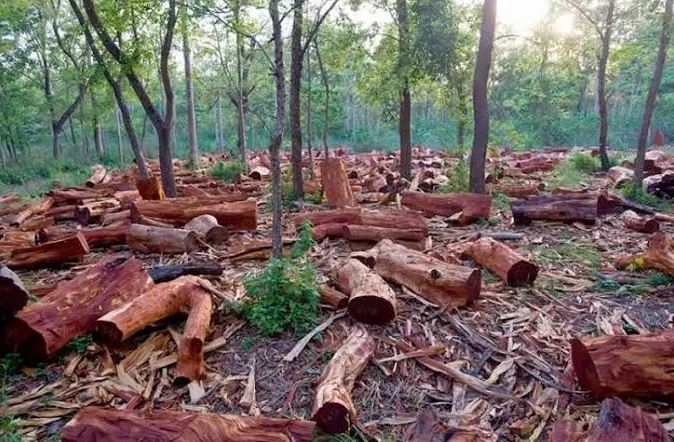Mamoon Azeem
In the last 24 years, Pakistan has witnessed a disheartening loss of almost 20% of its forest cover, a research study by the Pakistan Institute of Development Economics (PIDE) revealed. This concerning decline in greenery is exacerbated by factors such as rapid population growth, rising urbanization, high poverty rates, and a scarcity of energy, particularly in the form of gas.
Cities like Lahore and Islamabad are witnessing the detrimental impact of infrastructure development, with large road structures taking a toll on forestation. Consequently, Pakistan now ranks among the countries with the lowest number of trees globally, possessing less than one billion trees. Furthermore, the total forest area in Pakistan has decreased by a significant 20% since 2000.
The causes are multifaceted, ranging from timber mafias exploiting forests to individuals resorting to wood fires due to erratic access to electricity. This grim scenario demands immediate attention and collaborative efforts to reverse the trend. To address this crisis, a comprehensive strategy is imperative. Enforcing and strengthening laws to protect forests, promoting reforestation efforts, and encouraging sustainable land-use practices are key components.
Moreover, increasing public awareness about the environmental significance of forests and the consequences of deforestation is essential. Alternative livelihoods for communities dependent on forest resources should be explored to reduce reliance on unsustainable practices. Collaboration with international organizations and neighboring countries is vital to address transboundary issues related to deforestation.
In the face of climate change and the vital role of forests in regulating weather patterns and carbon storage, Pakistan must act swiftly and decisively. The nation’s future sustainability hinges on a concerted effort to protect and replenish its dwindling forests. The time for action is now.












